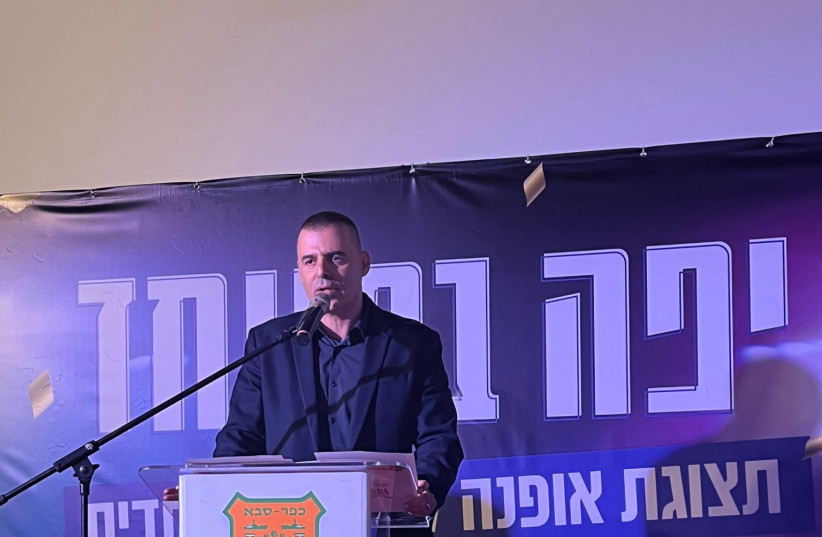A fashion show spotlighting citizens with disabilities was put on by Israel's Kfar Saba municipality on Sunday evening with the support of local businesses.
The event, titled "Extremely Beautiful" is just one of several being put on in December in honor of Disability Awareness Month and featured clothing from Dandasha, a chain of thrift stores that also serve as rehabilitation and vocational training centers for women with cognitive disabilities.
Hair, makeup and styling for the models were all provided by local makeup artists and stylists.
"Tonight was one of the most exciting evenings of my life," said Kfar Saba Mayor Rafi Sa'ar. "To see the residents walking on the runway, receiving applause and showing that in Kfar Saba a disability is not a limitation was one of the highlights of Disability Awareness Month in our city.
"I thank all the local businesses that contributed, mobilized and volunteered, and everyone who took part in this lovely and exciting event," concluded the mayor.

The disability community in Israel
Although Israel's disabled community has seen some improvement in social acceptance and general accessibility in the last few decades, 2021 data from the Justice Ministry's Commission for Equal Rights of Persons with Disabilities (CERPD) indicates that the country has a long way to go before people with disabilities are treated equitably across the board.
The CERPD reported that, as of 2020, people with disabilities accounted for approximately 20% of the Israeli population - more than 1.5 million people. This number includes those with hearing and vision impairment as well as those with physical and cognitive disabilities.
What is more, 43% of people with disabilities in Israel are unemployed, and only about 23% of those who are employed earn NIS 5,000 or more per month.
Accessibility in Israel
Israeli law defines accessibility as "the ability to reach, to be mobile and to be oriented in a place, to use and to enjoy service, to receive information that is given or produced in a place or a service or in connection with them, to use given facilities and to participate in programs and activities that take place there, and all of these in an equal, dignified, independent and safe manner."
Furthermore, the law requires any entity providing a public service to be accessible by that definition. However, in reality, this is not always the case. One notable example was the 2022 elections when at least one accessible voting booth in Jerusalem was found to be decidedly inaccessible, requiring voters to climb multiple flights of stairs.
Public transportation is another area where the law calls for accessibility but the reality is far less accessible. All buses are equipped with audio and visual cues to let passengers know where the bus is stopping next. However, the audio and visual systems are frequently broken or turned off entirely.
